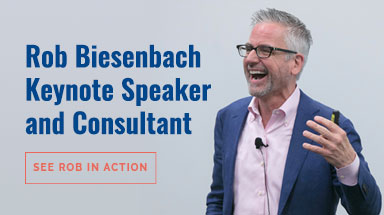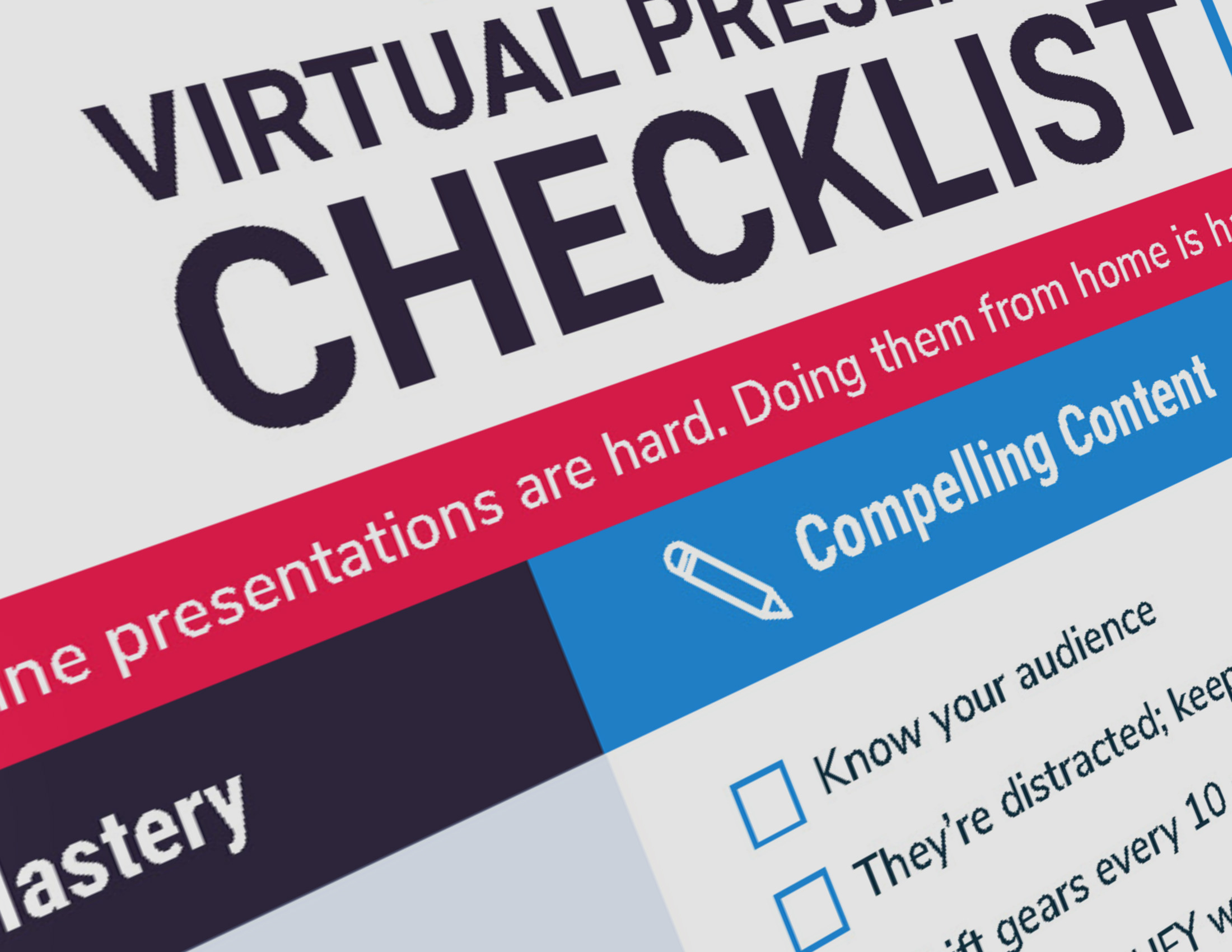
So I really feel for those in the corporate world who find themselves staring at the screen trying to figure out what to say for some presentation they’re obligated to give.
It reminds me of George Costanza, roped into giving a talk on risk management.
So how do you make creating a presentation a quick and easy process? You don’t. It takes a lifetime to prepare.
“Good Public Speaking is Based on Good Private Thinking”
Right now I’m reading Scott Berkun’s “Confessions of a Public Speaker,” and this passage may be the most important lesson in the whole book (though I haven’t finished it, so stand by):
The problem with most bad presentations I see is not the speaking, the slides, the visuals, or any of the things people obsess about. Instead, it’s the lack of thinking … All good public speaking is based on good private thinking.
So true. When I put together a presentation, I’m rarely in the position of trying to dream up lessons, remember examples or research data. If anything, the biggest task is deciding what proof points and examples to leave out.
That’s because I’ve been thinking about these topics for years and years, and I established a strong point of view a long time ago.
Lincoln, Clinton and King
Berkun goes on to tell the story of the Gettysburg Address, famously written on the back of an envelope. But it’s not like Lincoln just dreamed up the speech on the carriage ride over and jotted down his thoughts. He had been wrestling with these problems and ideas for years.
In fact, Lincoln probably could have done the speech without notes (though it might not have been quite as poetic).
That’s what great orators are capable of doing. Much of Martin Luther King Jr’s “I Have a Dream” speech was woven together “on the fly” from bits and pieces of earlier speeches and sermons.
And Bill Clinton famously ad-libbed much of a big speech when the wrong version was loaded into the TelePrompter.
Great speakers start out as big thinkers.
What This Means For You
Okay, we’re not all master orators. What are some lessons we mortals can apply to our own speaking and presenting? Here are three things to consider:
1. Have a Strong Point of View
It’s never too early in your career to think about how you view the world and the principles you stand for. For me, as a communicator, there are certain “truths” I hold dear:
- Put your audience’s concern first.
- Be as open and transparent as possible.
- Speak and write like a human.
- Tell stories instead of dumping data.
- Show empathy and emotion.
Those principles provide a firm grounding for me in any situation, whether I’m helping a client solve a tricky problem or dealing with a tough question on stage.
What are your core beliefs? Define them, internalize them, and they will guide your thinking through any situation.
2. Be Honest With What You Know (And Don’t Know)
Here’s one of the biggest challenges my clients face. They have a big speech coming up — a national sales conference, annual meeting or industry event — and the strategies and programs they want to talk about are still being formulated and deliberated.
So how do you give your audience the sense you know what you’re doing in the face of ambiguity? First, start with what you know. Second, be open about what you don’t know — and explain why.
That part is critical. People will take “I don’t know” for an answer if you take the time to explain why you don’t know.
Finally, fall back on your guiding principles. As in, “I can’t tell you yet what the new compensation system will look like, but here’s what’s guiding our decision-making …”
(Note that this advice is in line with my second principle of communications. See how that works?
3. Don’t Do the Presentation
The great thing about big events like conferences is that they help drive often glacial decision-making in a company. New product has to finished in time to be rolled out at the big trade show or the marketing strategy has to be finalized for unveiling at the annual sales meeting.
Obviously, those kinds of major events are hard to cancel or put off.
But there are plenty of other lower-stakes presentations we do that are easy to put off — or even turn down altogether. You don’t have to accept every invitation to serve on a panel or address your professional or industry association.
We say yes to these things because it’s hard to say no. Or we think by the time the event rolls around we’ll be ready.
But if you have any doubts about whether you have something valuable to contribute, or you’re not sure you’ll have the time to put something good together, by all means, turn the opportunity down!
Always Be Speechwriting
In the meantime, always be thinking about the issues confronting your business or your customers. Turn the ideas over in your mind, and be open as you read, work and make your way around the world.
Keep an eye out for examples, analogies, stories and data that support your point of few. Store them in your memory banks or, better yet, write them down.
That way, the next time you’re facing that blinking cursor on your computer screen, the ideas are more likely to flow naturally. And you’ll be more likely to create your presentation with less pain.




